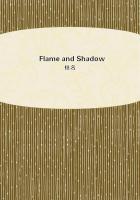Property is impossible, because its power of Accumulation is infinite, and is exercised only over finite quantities.
If men, living in equality, should grant to one of their number the exclusive right of property; and this sole proprietor should lend one hundred francs to the human race at compound interest, payable to his descendants twenty-four generations hence,--at the end of six hundred years this sum of one hundred francs, at five per cent., would amount to 107,854,010,777,600 francs; two thousand six hundred and ninety-six and one-third times the capital of France (supposing her capital to be 40,000,000,000), or more than twenty times the value of the terrestrial globe!
Suppose that a man, in the reign of St.Louis, had borrowed one hundred francs, and had refused,--he and his heirs after him,--to return it.Even though it were known that the said heirs were not the rightful possessors, and that prescription had been interrupted always at the right moment,--nevertheless, by our laws, the last heir would be obliged to return the one hundred francs with interest, and interest on the interest; which in all would amount, as we have seen, to nearly one hundred and eight thousand billions.
Every day, fortunes are growing in our midst much more rapidly than this.The preceding example supposed the interest equal to one-twentieth of the capital,--it often equals one-tenth, one-fifth, one-half of the capital; and sometimes the capital itself.
The Fourierists--irreconcilable enemies of equality, whose partisans they regard as SHARKS--intend, by quadrupling production, to satisfy all the demands of capital, labor, and skill.But, should production be multiplied by four, ten, or even one hundred, property would soon absorb, by its power of accumulation and the effects of its capitalization, both products and capital, and the land, and even the laborers.Is the phalanstery to be prohibited from capitalizing and lending at interest? Let it explain, then, what it means by property.
I will carry these calculations no farther.They are capable of infinite variation, upon which it would be puerile for me to insist.I only ask by what standard judges, called upon to decide a suit for possession, fix the interest? And, developing the question, I ask,--Did the legislator, in introducing into the Republic the principle of property, weigh all the consequences? Did he know the law of the possible? If he knew it, why is it not in the Code? Why is so much latitude allowed to the proprietor in accumulating property and charging interest,--to the judge in recognizing and fixing the domain of property,--to the State in its power to levy new taxes continually? At what point is the nation justified in repudiating the budget, the tenant his farm-rent, and the manufacturer the interest on his capital? How far may the idler take advantage of the laborer? Where does the right of spoliation begin, and where does it end? When may the producer say to the proprietor, "I owe you nothing more"? When is property satisfied? When must it cease to steal?
If the legislator did know the law of the possible, and disregarded it, what must be thought of his justice? If he did not know it, what must be thought of his wisdom? Either wicked or foolish, how can we recognize his authority?
If our charters and our codes are based upon an absurd hypothesis, what is taught in the law-schools? What does a judgment of the Court of Appeal amount to? About what do our Chambers deliberate? What is POLITICS? What is our definition of a STATESMAN? What is the meaning of JURISPRUDENCE?
Should we not rather say JURISIGNORANCE?
If all our institutions are based upon an error in calculation, does it not follow that these institutions are so many shams?
And if the entire social structure is built upon this absolute impossibility of property, is it not true that the government under which we live is a chimera, and our present society a utopia?
NINTH PROPOSITION.
Property is impossible, because it is powerless against Property.
I.By the third corollary of our axiom, interest tells against the proprietor as well as the stranger.This economical principle is universally admitted.Nothing simpler at first blush; yet, nothing more absurd, more contradictory in terms, or more absolutely impossible.
The manufacturer, it is said, pays himself the rent on his house and capital.HE PAYS HIMSELF; that is, he gets paid by the public who buy his products.For, suppose the manufacturer, who seems to make this profit on his property, wishes also to make it on his merchandise, can he then pay himself one franc for that which cost him ninety centimes, and make money by the operation? No: such a transaction would transfer the merchant's money from his right hand to his left, but without any profit whatever.
Now, that which is true of a single individual trading with himself is true also of the whole business world.Form a chain of ten, fifteen, twenty producers; as many as you wish.If the producer A makes a profit out of the producer B.B's loss must, according to economical principles, be made up by C, C's by D;and so on through to Z.
But by whom will Z be paid for the loss caused him by the profit charged by A in the beginning? BY THE CONSUMER, replies Say.
Contemptible equivocation! Is this consumer any other, then, than A, B.C, D, &c., or Z? By whom will Z be paid? If he is paid by A, no one makes a profit; consequently, there is no property.If, on the contrary, Z bears the burden himself, he ceases to be a member of society; since it refuses him the right of property and profit, which it grants to the other associates.















